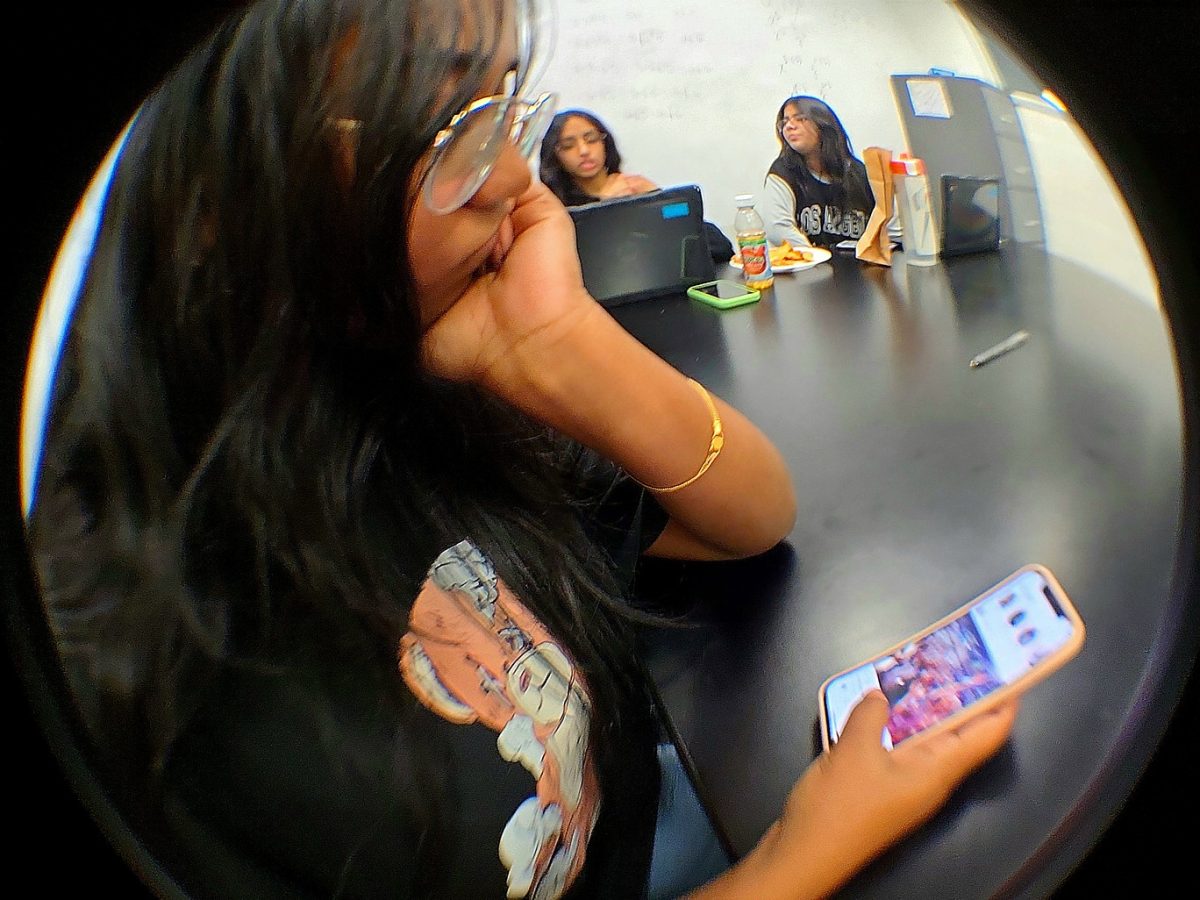The only time I have ever felt like I was missing out on something, was when I saw that all of my friends were in AP and honors classes and I was not in even one. When I looked up AP classes, almost every website told me that AP classes give you “a head start in high school,” and “boost your GPA.” All of this made me feel like I would fall behind in everything and my life would have no meaning if I was not in AP. Even though I was doing just fine in my regular classes, that fear of missing out on opportunities that many people have taken advantage of was so unsettling, that by the end of the first month, I was begging my counselor to let me switch classes.
FOMO is short for Fear Of Missing Out. By definition, it is a feeling of anxiety or insecurity over the possibility of missing out on something, such as an event or an opportunity.
According to a journal article by Mayank Gupta and Aditya Sharma, “FOMO includes two processes; firstly, perception of missing out followed up with a compulsive behavior to maintain these social connections.”
This need to “maintain social connections” drives us to overcommit ourselves. We say yes to every invitation, pack our schedules with activities, and stretch ourselves thin trying to keep up with the number of social engagements. We fear that declining an invitation or skipping an event will result in missed opportunities or exclusion from our social circles. However, this frantic pursuit of participation often leaves us feeling exhausted, overwhelmed, and disconnected from our true desires and priorities.
What I find most interesting is the fact that this phenomenon was first identified by Dr. Dan Herman, a marketing strategist. This is why every time you see a commercial, it tells you that you have to buy something to get people to like you. Whether it’s overspending on clothes and shoes to keep up with trends or buying the new iPhone just because somebody on TikTok did.
Which leads to another major cause of FOMO; social media. As people constantly compare themselves to others and strive to keep pace with their achievements, they may begin to question their worth and purpose.
Recent studies have shown a direct relationship between social media usage and feelings of FOMO, as well as a direct relationship between feelings of FOMO and depression and loneliness.
These mental health issues are not limited to FOMO as a direct result of advertising efforts: Many social media users have reported feeling symptoms of FOMO resulting from seeing social media posts from friends and colleagues spending time together or engaging in a social event.
The scary part is, you might have FOMO and it’s not even something you did. Maybe you just wanted a pink backpack with wheels on it just because a friend got it for her birthday. And your mom asks you “If your friend jumps off a cliff, would you do it too?” I think she meant to say “Do not miss out on your own life by comparing yourself to others,” but I think we all get the point.




